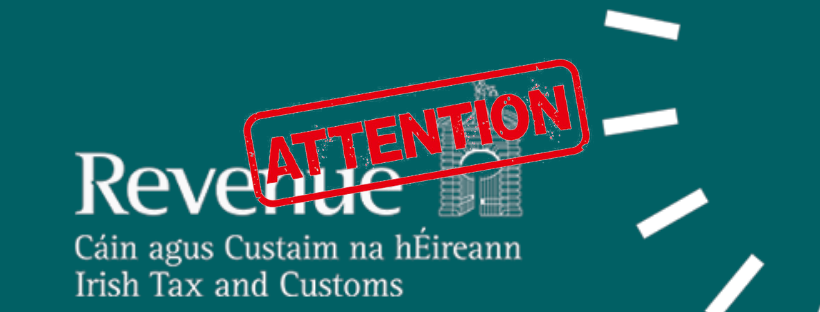News
Changes to Revenue Demand Letters

The Revenue Commissioners are updating their systems to make the collection of unpaid taxes more efficient and effective and taxpayers can expect to see significant changes in how they communicate with the Revenue Commissioners, in this regard, going forward.
What is the Current Procedure?
While the Revenue Commissioners have not yet confirmed when the new procedures will be introduced, it is anticipated that the first of these changes will be implemented by the end of March 2019 and will impact the how taxpayers engage with them upon receipt of a Demand Letters. Currently, when a taxpayer has overdue liabilities they receive a demand letter detailing the amounts outstanding for each tax-head. The letters are issued by individual case workers and their contact information is available on the letter.
Generally, the taxpayer will contact the caseworker and either pay the outstanding liabilities or enter into an instalment arrangement. In cases where the taxpayer does not engage with the Revenue Commissioners they are issued with a series of further demand notices, and it can take several months before a case is progressed to enforcement.
What’s Changing?
From the end of March 2019 the Revenue Commissioners are changing their procedures for the collection of outstanding taxes. Taxpayers will now receive a 7-day notice demand letter, if the taxpayer has not engaged with Revenue within the 7 days the case will automatically be marked for enforcement.
In addition to this demand letters will no longer be issued by a caseworker instead they will be automatically generated. The letters will contain a general helpline for taxpayers to contact.
How will this Impact Me and My Business?
Essentially this change means that taxpayers, whether individuals, businesses or companies, will need to engage with the Revenue Commissioners if they receive a demand letter. It appears as though Revenue are hoping a new, more streamlined process will increase tax collections while also reducing the amount of time spent on chasing outstanding payments.
If you would like further information on the above please do not hesitate to contact a member of our team, they will be happy to help!
